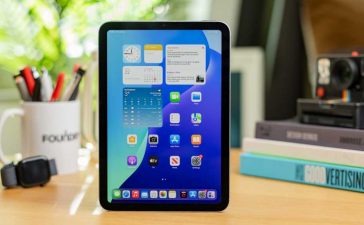 December 11, 2013: A Chinese labor rights group calls on Apple to investigate the deaths of several workers at a Shanghai factory run by iPhone manufacturer Pegatron.
December 11, 2013: A Chinese labor rights group calls on Apple to investigate the deaths of several workers at a Shanghai factory run by iPhone manufacturer Pegatron.
Most controversially, one of the dead workers is just 15 years old. The underage worker reportedly succumbed to pneumonia after working extremely long hours on the iPhone 5c production line.
Deaths in iPhone factories lead to scrutiny of Apple
Poor working conditions inside Chinese factories came to light after Apple started its meteoric rise in the 2000s. Apple is far from the only tech company to have its products made in China. However, Cupertino’s high visibility, and propensity for casting itself as a “force for good” in tech, means critics often single out the company in this area. The 2013 call for a probe into iPhone factory deaths intensified the scrutiny of Apple’s supply chain.
Much of the time, the manufacturer facing criticism alongside Apple over factory working conditions is supplier Foxconn. After a number of workers died at Foxconn factories, Apple faced heavy criticism in the media. Steve Jobs made things worse with comments that some construed as uncaring, such as telling interviewers that the factories were actually “pretty nice.”
The Pegatron story in 2013 showed that the problem extended beyond Foxconn. The 15-year-old worker who died, Shi Zhaokun, secured a job at a Pegatron factory using a fake ID. (The document stated his age as 20.) In his first month at the company, he reportedly broke overtime laws by working upward of 280 hours. He clocked 79 hours in his first week alone.
Apple investigates the allegation
Apple later revealed that it sent a medical team to the Pegatron facility. The delegation determined that working conditions did not lead to Shi’s death. According to Apple’s medical experts, the boy died of pneumonia.
“Last month we sent independent medical experts from the U.S. and China to conduct an investigation of the factory,” Apple said in a statement. “While they have found no evidence of any link to working conditions there, we realize that is of little comfort to the families who have lost their loved ones. Apple has a long-standing commitment to providing a safe and healthy workplace for every worker in our supply chain, and we have a team working with Pegatron at their facility to ensure that conditions meet our high standards.”
A Pegatron representative said three other employee deaths around that time “were caused by various medical conditions unrelated to work at the factory,” according to Reuters.
Ongoing challenges for Apple in China after iPhone factory deaths
In the aftermath of the deaths at the iPhone factories, Pegatron began employing facial recognition technology to screen out underage workers. It also made sure that applicants for production line jobs had their government-issued IDs checked for authenticity. Workers’ faces got matched to their ID photos using AI-powered software.
Apple, meanwhile, ramped up efforts to make its supply chain more humane. As detailed in reports on worker conditions, Apple achieved around 95% compliance with enforcing a maximum 60-hour work week for people in its supply chain. The company also took other steps to reduce the hiring of underage workers.
In 2016, Apple CEO Tim Cook reportedly pledged to invest $275 billion in China to boost the country’s economy and “technological prowess.”
As part of the secret deal, which came to light in 2021, Apple supports “training of high-quality Chinese talents.” The company also reportedly promised to boost research and development facilities, renewable energy projects, “advanced manufacturing technologies” and more.
Apple works to lessen its reliance on China
At the same time, Apple continues to add factories in India, Vietnam and other countries to lessen its reliance on China’s workforce. And Cupertino’s efforts to move manufacturing out of China seem to be accelerating.
Though not as horrific as the iPhone factory deaths, occasional human rights issues still bubble up throughout Apple’s massive international supply chain. Violent protests erupted in November 2022 at “iPhone City” — a sprawling Foxconn plant in Zhengzhou, China — over COVID-19 lockdowns and pay disputes.
It’s a big challenge, and one that Apple and its suppliers continue to address.












